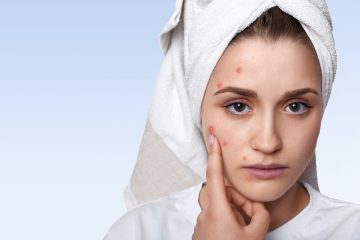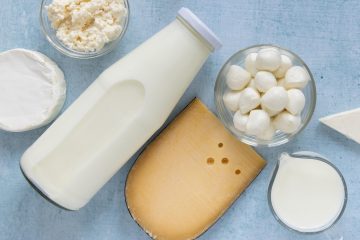Whether you’re a teenager or an adult, struggling with acne can be a frustrating and confidence-shattering experience. While many factors can contribute to acne, such as genetics and hormones, diet plays a significant role in its development and severity. In this article, we will explore the connection between diet and acne and discover the foods you should eat and avoid to improve your skin’s health.
What causes acne?
Acne is a common skin condition that occurs when hair follicles become clogged with oil and dead skin cells. The overgrowth of bacteria in these clogged pores leads to inflammation, redness, and the formation of pimples. Hormonal changes, genetics, and certain medications can all influence the development of acne. However, diet is increasingly being recognized as a key factor that can either worsen or improve acne symptoms.
Research has shown that high-glycemic index (GI) foods can trigger hormonal fluctuations that contribute to acne development. White bread, sugary snacks, and sweetened beverages rapidly spike blood sugar, increasing insulin production. Elevated insulin levels can stimulate oil production in the skin and promote the growth of acne-causing bacteria.

The link between diet and acne
The relationship between diet and acne is complex and multifaceted. Studies have identified common dietary patterns that can exacerbate acne symptoms in many individuals, though reactions vary. In addition to high-GI foods, dairy products have also been identified as potential triggers for acne breakouts.
Consuming dairy products can lead to increased sebum production and inflammation in the skin, both of which are key factors in the development of acne. Dairy contains hormones and growth factors that can disrupt the body’s natural hormone balance, leading to skin issues. Moreover, dairy consumption has been linked to an increase in insulin-like growth factor 1 (IGF-1), a hormone that can exacerbate acne symptoms.
Foods that can worsen acne
In addition to high-GI foods and dairy products, foods rich in saturated fats have also been associated with an increased risk of acne. Saturated fats can promote inflammation in the body, which can manifest as acne flare-ups on the skin. Fried foods, processed snacks, and fatty cuts of meat are examples of foods high in saturated fats that may contribute to acne development.

Be mindful of your diet and limit foods that exacerbate acne symptoms. Reducing high-GI foods, dairy, and saturated fats may improve skin health and reduce acne frequency and severity.
Foods that can improve acne
Certain foods with anti-inflammatory and skin-clearing properties are beneficial for individuals with acne-prone skin. Antioxidant-rich fruits and vegetables, like berries, spinach, and kale, help reduce inflammation and protect the skin from oxidative stress.
Fatty fish like salmon, mackerel, and sardines provide omega-3 fatty acids, which researchers have found improve acne symptoms. Omega-3 fatty acids help reduce inflammation in the body and support skin health, leading to a clearer complexion. Additionally, foods with a low GI, like whole grains, legumes, and nuts, can help stabilize blood sugar levels and prevent insulin spikes that may trigger acne.
The role of dairy in acne
Dairy products, including milk, cheese, and yogurt, have long been debated for their potential impact on acne. Some studies suggest dairy products can worsen acne symptoms in certain individuals, though more research is needed to understand this relationship fully.
One theory suggests dairy contains hormones and growth factors that disrupt hormone balance, increasing sebum production and skin inflammation. Additionally, dairy products can raise insulin and IGF-1 levels, both linked to acne development.

The impact of sugar on acne
Consuming foods high in sugar and refined carbohydrates can lead to spikes in blood sugar levels, triggering a cascade of hormonal changes that can worsen acne symptoms. When blood sugar levels rise rapidly, the body produces more insulin to help regulate glucose levels. Elevated insulin levels can stimulate oil production in the skin and promote the growth of acne-causing bacteria.
To support clear and healthy skin, it’s important to minimize your intake of sugary snacks, desserts, and sweetened beverages. Instead, opt for whole fruits, vegetables, and whole grains that have a lower GI and are less likely to cause blood sugar spikes. By making mindful food choices, you can help reduce inflammation in the body and improve the overall health of your skin.
The benefits of a balanced diet for clear skin
Maintaining a balanced diet that includes a variety of nutrient-dense foods is essential for promoting clear and radiant skin. Eating a wide range of fruits, vegetables, whole grains, lean proteins, and healthy fats can provide your skin with the nutrients it needs to stay healthy and vibrant.
Antioxidant-rich foods like berries, leafy greens, and nuts can help protect your skin from oxidative damage and reduce inflammation. Omega-3 fatty acids found in fatty fish and flaxseeds can support skin health and improve conditions like acne. By nourishing your body from the inside out, you can achieve a glowing complexion and reduce the likelihood of acne breakouts.

Other lifestyle factors that can influence acne
In addition to diet, other lifestyle factors can play a role in the development and severity of acne. Stress, lack of sleep, and poor skincare habits can all impact the health of your skin and contribute to acne breakouts. Managing stress through relaxation techniques, getting an adequate amount of sleep each night, and following a consistent skincare routine can help improve your skin’s condition.
Regular exercise can also benefit your skin by promoting circulation, reducing inflammation, and supporting overall skin health. Incorporating physical activity into your daily routine can help maintain healthy hormone levels and prevent acne flare-ups. By adopting a holistic approach to skincare that includes a nutritious diet, stress management, adequate sleep, and regular exercise, you can support clear and blemish-free skin.
Tips for incorporating acne-friendly foods into your diet
Making dietary changes to improve your skin’s health doesn’t have to be daunting. Start by incorporating more antioxidant-rich foods, omega-3 fatty acids, and low-GI foods into your meals and snacks. Swap out sugary treats for fresh fruit, include leafy greens in your salads and smoothies, and choose lean proteins like fish and poultry.
Experiment with different recipes and meal ideas to discover new ways to enjoy acne-friendly foods. Keep a food journal to track your intake and monitor how your skin responds to various dietary changes. Remember that everyone’s skin is unique, so it may take some trial and error to find the right balance of foods that work best for your skin type.

Conclusion
In conclusion, diet plays a significant role in acne, with certain foods potentially worsening or improving symptoms. By choosing nutrient-dense, skin-supportive foods mindfully, you can proactively manage acne and promote clearer skin.
Incorporating antioxidant-rich fruits and vegetables, omega-3 fatty acids from fatty fish, and low-GI foods into your diet can help reduce inflammation, balance hormone levels, and support overall skin health. Listen to your body, monitor how your skin responds to foods, and seek advice from a healthcare provider or dermatologist if needed.
Your diet and lifestyle choices empower you to achieve a healthy, radiant complexion, boosting confidence and well-being. Begin by nourishing your skin internally and adopting a holistic skincare approach that prioritizes health and happiness.
